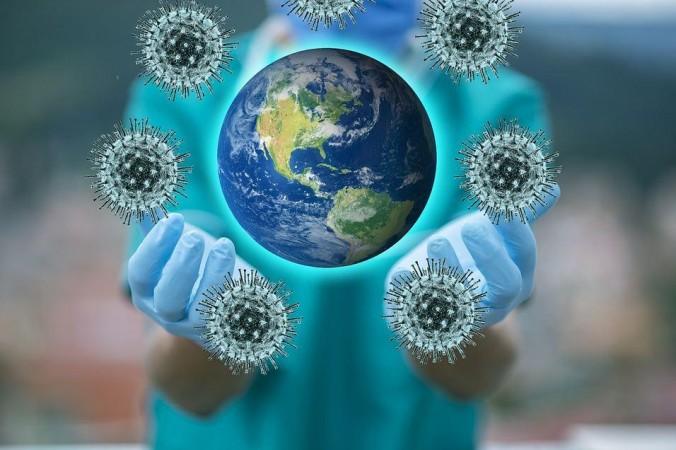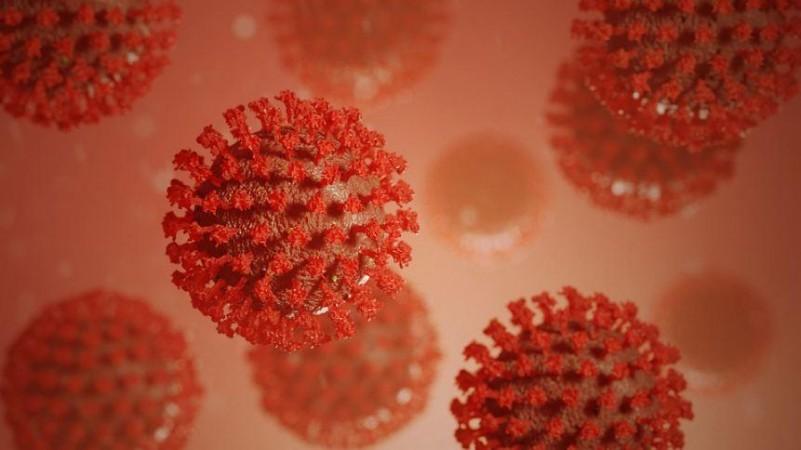The COVID-19 pandemic brought the world to its knees with its sheer virulence and adaptive ability. It forced the scientific community to work at an unprecedented pace to develop therapeutic regimens and vaccines to combat it. As researchers turned to existing drugs with the hopes of tackling the SARS-CoV-2 virus, one drug emerged as a viable candidate— Remdesivir. Now, the drug manufactured by the US-based pharmaceutical company, Gilead Sciences, is being turned to as a savior.
Reports emerging from across India have stated that there is an acute shortage of Remdesivir, and sky-rocketing prices; highlighting not just the demand for the drug, but also the faith in it as the second wave sweeps the country. Let us take a look at Remdesivir's journey in the fight against COVID-19
Remdesivir's Fighting Mechanism
The genetic material of viruses is either DNA or RNA. Coronaviruses such as the SARS-CoV-2 are known as RNA viruses due to RNA being present in their genetic material. A coronavirus gains entry into a human cell using a protein structure known as a 'spike'. After invading the cell, it produces copies of itself through the use of an enzyme known as RNA-dependent RNA polymerase (RdRp).

Remdesivir is said to act against coronaviruses by impeding this process. It inhibits the RdRp enzyme and obstructs the replication of the virus. As Remdesivir replaces the material required for the pathogen to replicate within cells, it prevents the replication of the coronavirus further.
Explaining the drug's modus operandi, Dr.Peter Chin-Hong, from the University of California, San Fransisco, said in a statement, "Remdesivir is basically faking the virus into thinking it's a building block of viral genetic material."
Repurposed to Fight the Novel Coronavirus
Remdesivir, which is sold as Veklury was initially developed as a potential treatment for Hepatitis C that is caused by the hepatitis C virus (HCV). However, it was not found to be significantly effective against the virus that attacks the liver. Being a broad-spectrum antiviral agent, there was a renewed interest in testing its efficacy against other lethal viruses that cause diseases such as the Middle East respiratory syndrome (MERS), Severe acute respiratory syndrome (SARS), and Ebola.

The drug has been found to exhibit a strong antiviral response against MERS and SARS, and also inhibit the replication of the Ebola virus through the blocking of its RNA polymerase in laboratory studies. However, its potential human applications have been questioned in several studies.
For example, a Phase three study conducted in the African nation of the Democratic Republic of the Congo in 2018, found that its effectiveness in preventing deaths was lesser compared to the study groups that received treatments such as those using monoclonal antibodies. Nevertheless, with the onset of the COVID-19 in 2020, Remdesivir received attention from the medical community again.
Effectiveness Questioned

Based on the analysis of three randomized trials, in October 2020, the US Food and Drug Administration approved the use of Remdesivir for treating hospitalized COVID-19 patients (adults and children older than 12 years of age). In India, Central Drugs Standard Control Organisation (CDSCO), also approved the use of the drug in June 2020.
However, several studies reporting conflicting results questioned the utility of the drug again. Data from a multicentre trial in Hubei, China, published in May 2020, found that in hospitalized patients with severe COVID-19, there was no association between treatment with Remdesivir and statistically relevant clinical benefits.
Results from a randomized Phase 3 trial involving 584 patients published in August 2020 reported that patients hospitalized with moderate COVID-19 who received a 5-day course of Remdesivir showed better results that were statistically significant. This was in comparison to the clinical status of those who received standard care at 11 days after the commencement of treatment. The difference, however, "was of uncertain clinical importance."
In November 2020, the WHO recommended against the use of the drug for treating COVID-19 patients, irrespective of the severity of their condition. The UN body presented its recommendation after reviewing data from 4 trials involving 7000 patients.
Not Out of the Fight

Conversely, a few studies have made a compelling argument for the drug's use. Results from the Adaptive COVID-19 Treatment Trial (ACTT) involving 1062 patients, published in September 2020, observed that Remdesivir showed superior benefits compared to the placebo in decreasing the duration of time required for recovery among adults.
A single-patient study by Cambridge University reported in December 2020 that a 31-year-old COVID-19 patient with a rare immune disorder experienced a notable improvement in his symptoms and the virus faded from his system gradually.
"Our patient's unusual condition gave us a rare insight into the effectiveness of Remdesivir as a treatment for coronavirus infection. The dramatic response to the drug – on repeated challenge – suggests that it can be a highly effective treatment, at least for some patients," said Nicholas Matheson, co-led of the study, in a statement.
A study involving 350 participants conducted by doctors at Apollo Hospital in Bangalore, India, found that when administered at earlier stages, Remdesivir can help reduce mortalities in patients with moderate-to-severe COVID-19. "Our study shows that treating patients with Remdesivir within nine days from the onset of symptoms results in significant mortality benefits," said the team.
- Prior to Covaxin, Bharat Biotech focused on many indigenous vaccines
- Superbug Killer is Here: Australian Scientists Develop Nanotech to Destroy Lethal Bacteria and Fungi
- Smoking Cannabis Can Impair Vision, Warn Scientists; Call for Awareness















